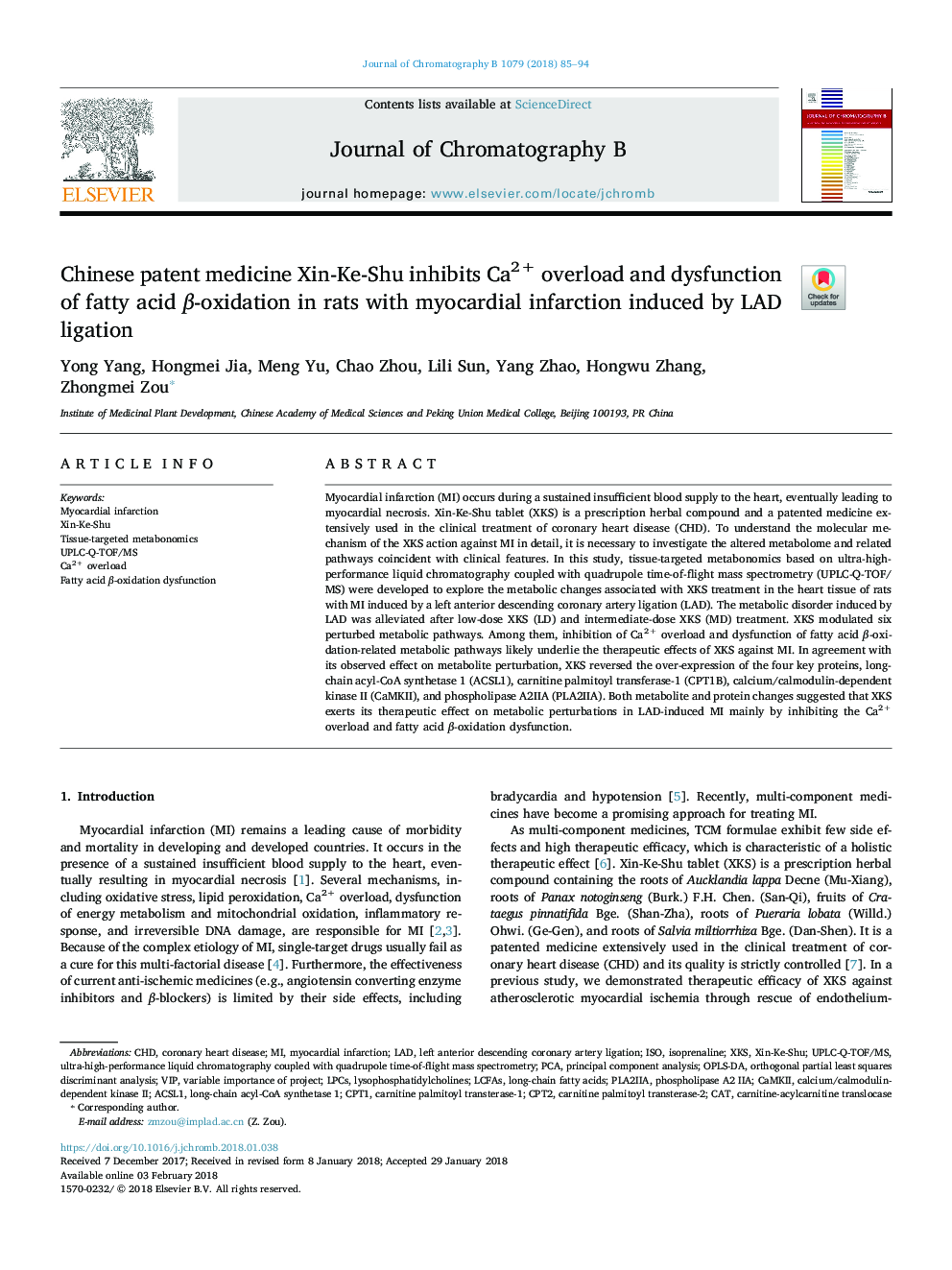| Article ID | Journal | Published Year | Pages | File Type |
|---|---|---|---|---|
| 7615317 | Journal of Chromatography B | 2018 | 10 Pages |
Abstract
Myocardial infarction (MI) occurs during a sustained insufficient blood supply to the heart, eventually leading to myocardial necrosis. Xin-Ke-Shu tablet (XKS) is a prescription herbal compound and a patented medicine extensively used in the clinical treatment of coronary heart disease (CHD). To understand the molecular mechanism of the XKS action against MI in detail, it is necessary to investigate the altered metabolome and related pathways coincident with clinical features. In this study, tissue-targeted metabonomics based on ultra-high-performance liquid chromatography coupled with quadrupole time-of-flight mass spectrometry (UPLC-Q-TOF/MS) were developed to explore the metabolic changes associated with XKS treatment in the heart tissue of rats with MI induced by a left anterior descending coronary artery ligation (LAD). The metabolic disorder induced by LAD was alleviated after low-dose XKS (LD) and intermediate-dose XKS (MD) treatment. XKS modulated six perturbed metabolic pathways. Among them, inhibition of Ca2+ overload and dysfunction of fatty acid β-oxidation-related metabolic pathways likely underlie the therapeutic effects of XKS against MI. In agreement with its observed effect on metabolite perturbation, XKS reversed the over-expression of the four key proteins, long-chain acyl-CoA synthetase 1 (ACSL1), carnitine palmitoyl transferase-1 (CPT1B), calcium/calmodulin-dependent kinase II (CaMKII), and phospholipase A2IIA (PLA2IIA). Both metabolite and protein changes suggested that XKS exerts its therapeutic effect on metabolic perturbations in LAD-induced MI mainly by inhibiting the Ca2+ overload and fatty acid β-oxidation dysfunction.
Keywords
CPT1ACSL1LPCsXin-Ke-ShuLCFAsCPT2OPLS-DACHDCATCaMKIIVIPPCAUPLC-Q-TOF/MSMyocardial infarctionLong-chain fatty acidsCa2+ overloadISOIsoprenalinecoronary heart diseaseorthogonal partial least squares discriminant analysisPrincipal component analysisLADLysophosphatidylcholinescarnitine-acylcarnitine translocasecalcium/calmodulin-dependent kinase II
Related Topics
Physical Sciences and Engineering
Chemistry
Analytical Chemistry
Authors
Yong Yang, Hongmei Jia, Meng Yu, Chao Zhou, Lili Sun, Yang Zhao, Hongwu Zhang, Zhongmei Zou,
